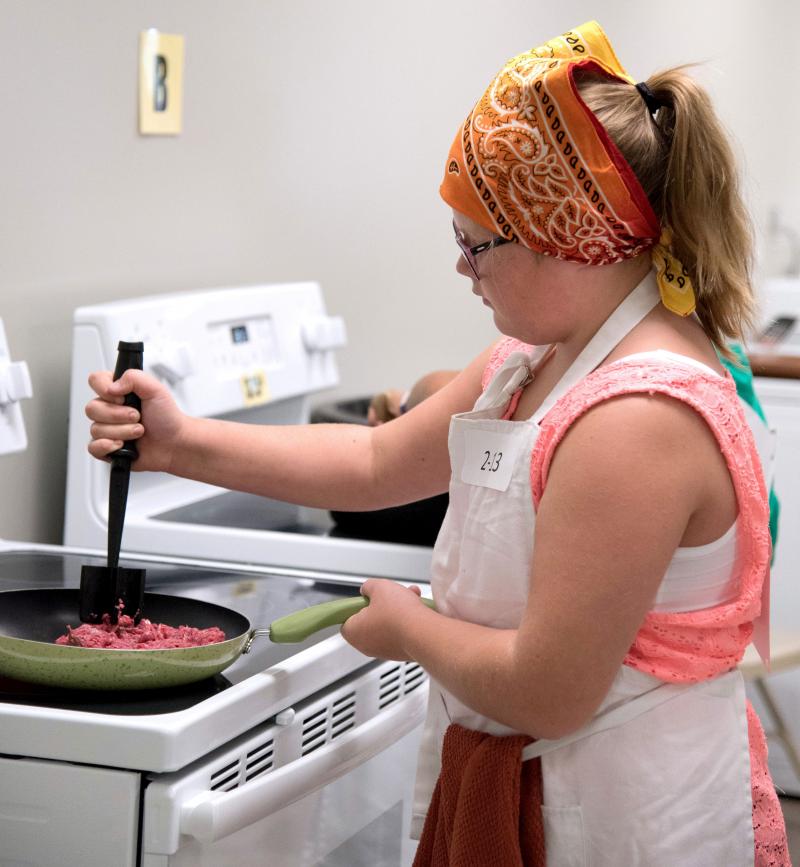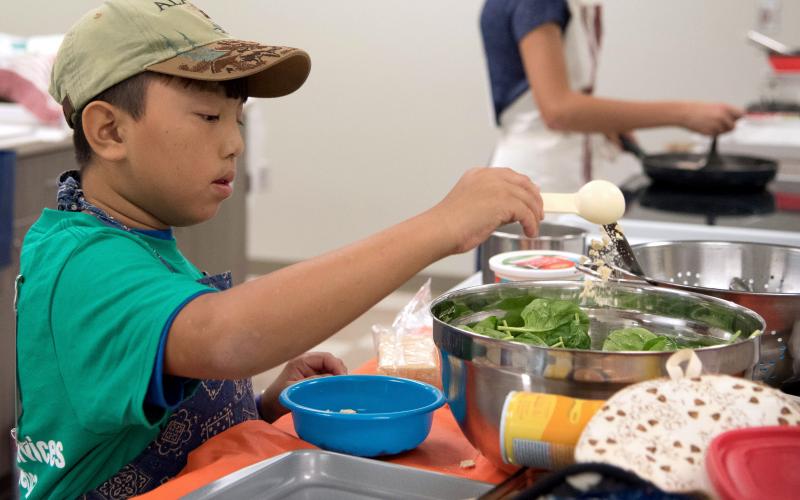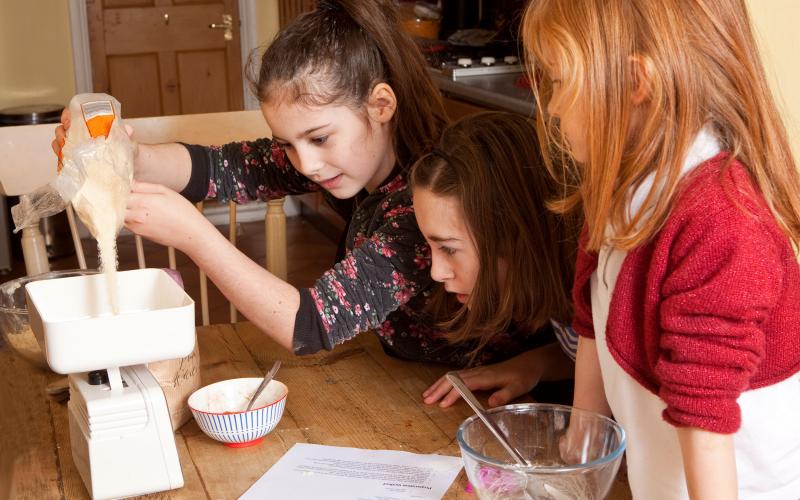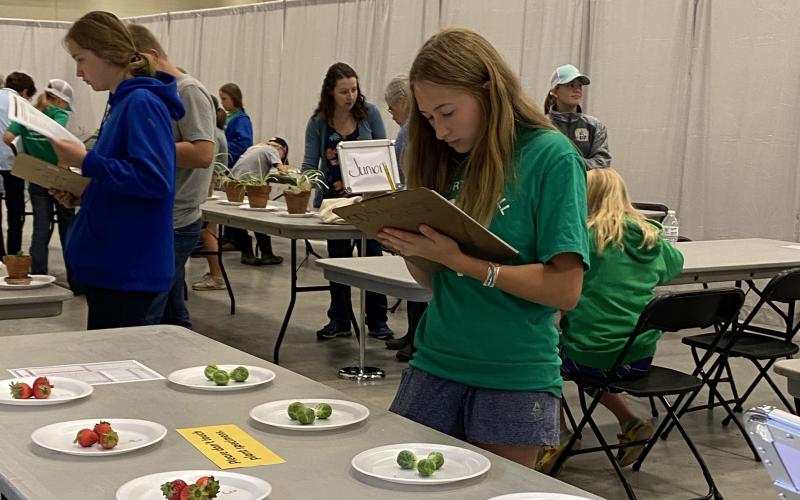
If you have ever baked a cake or even eaten an apple, you have taken part in food science. Food science encompasses how our body utilizes food (nutrition) as well as what changes food goes through on its way to our plates (food safety and preparation).
Ages and Stages of Youth Development
Beginners
Practice safe food handling practices including hand washing. Conduct experiments including taste-testing of food, maybe even invent a new flavor of ice cream! Understand where your food comes from and how to properly measure ingredients.
Juniors
Understand how different foods are made, such as yogurt and pasta. Learn to prevent foodborne illness. Explore protein chemistry by separating and cooking eggs in different ways. Experiment and learn to make cheese with heat and enzymes.
Seniors
Teach others to cook safely. Understand how physical and chemical reactions occur, osmosis and diffusion in food processes, and the role of compounds like starch and gluten. Learn why color and texture changes as food is cooked.
4-H Programming Priorities
Leadership
Youth may share knowledge learned through food science demonstrations. Encourage and mentor younger members to participate in the 4-H Special Foods Contest.
Health & Wellness
Learn the importance of safe food handling practices. While experimenting with food science and recipes, understand how to balance food intake and physical activity.
Science
Explore how adjusting ingredients within a recipe alters the final product. Learn about the functions of food properties such as carbohydrates, fats, and gluten.
Agriculture
Youth understand where their food comes from, including the role of producers and the food groups. Learn which states produce different commodities.
Get Involved

Youth Voice
- Illustrated talk describing what gluten is and how it works
- Discuss careers in food science
- Demonstrate how to measure ingredients

Community Service
- Present a workshop to educate others on food safety
- Organize a food drive
- Teach others in your community how to preserve foods

Career Connections
- Distribution
- Education/research
- Food safety
- Healthcare
- Marketing
- Processing
- Quality
Exhibit Ideas
- Public presentation/poster on areas in food science (examples may include how bread is baked, pasta making, why some fruits turn brown when sliced, or facts on gluten)
- Research the science behind a cooking process and create a “Project Why”


